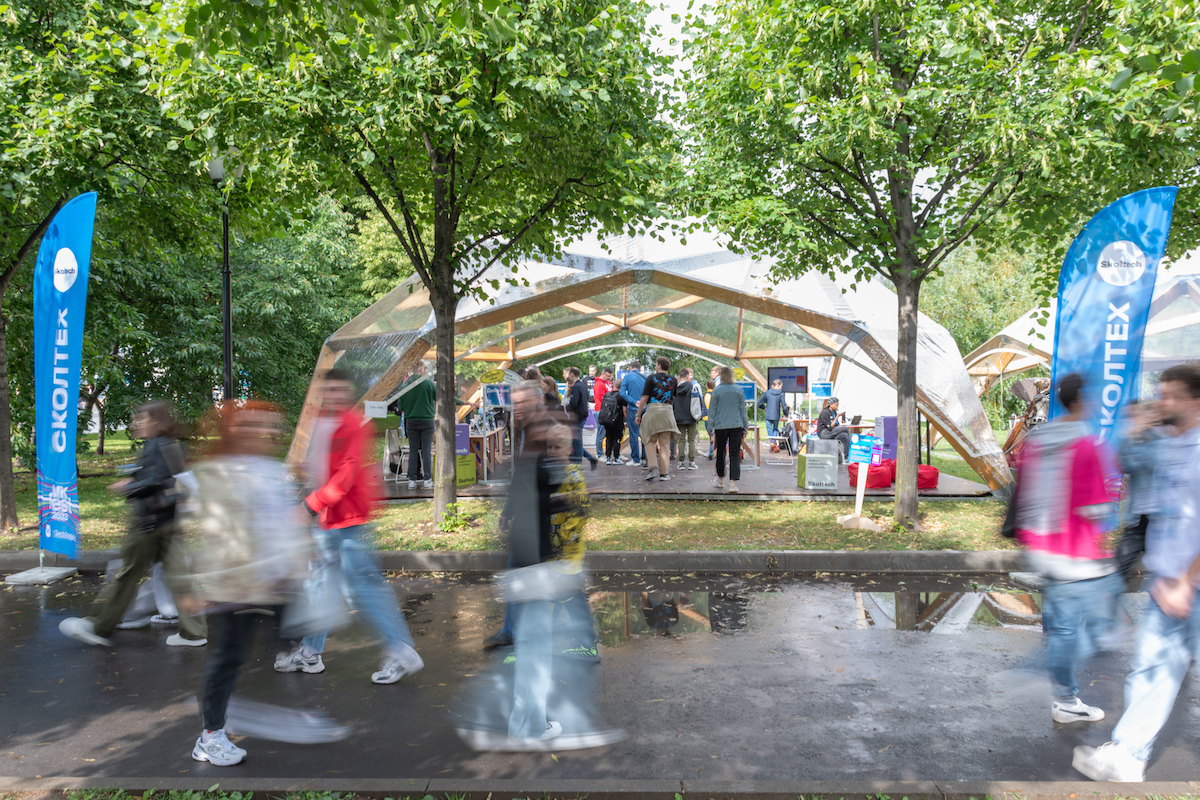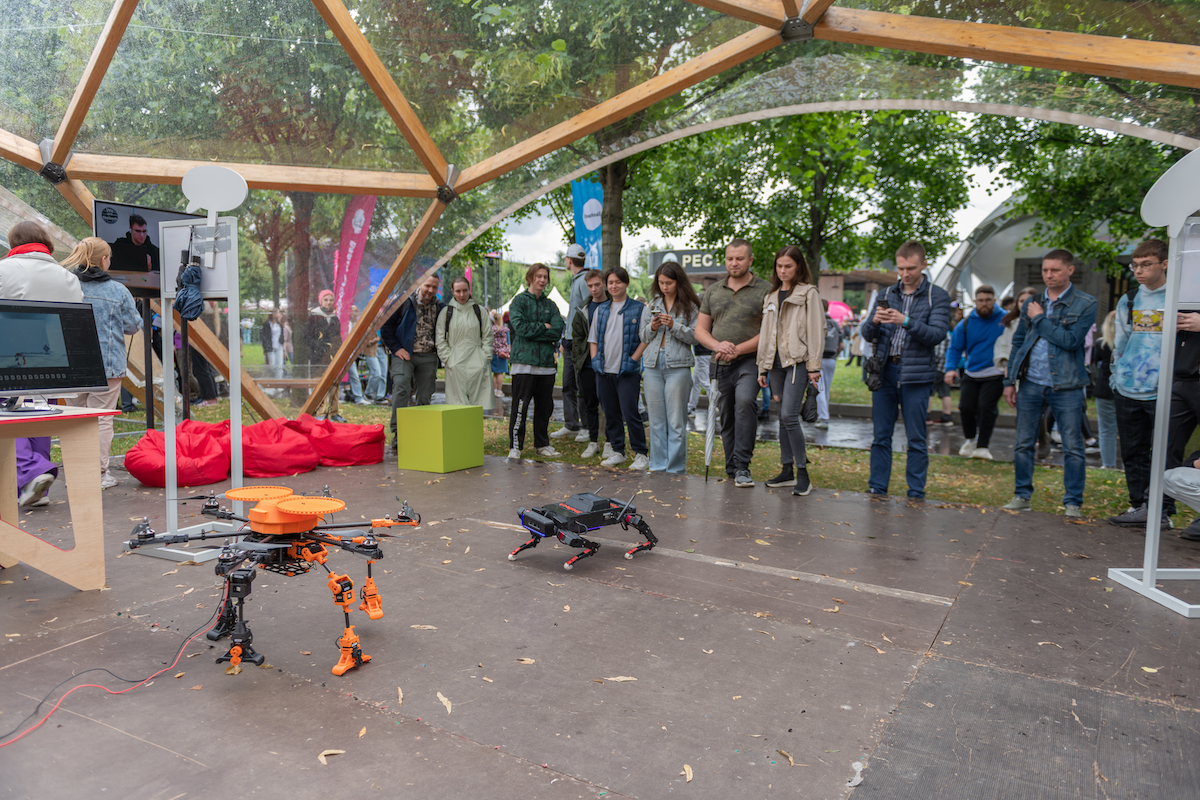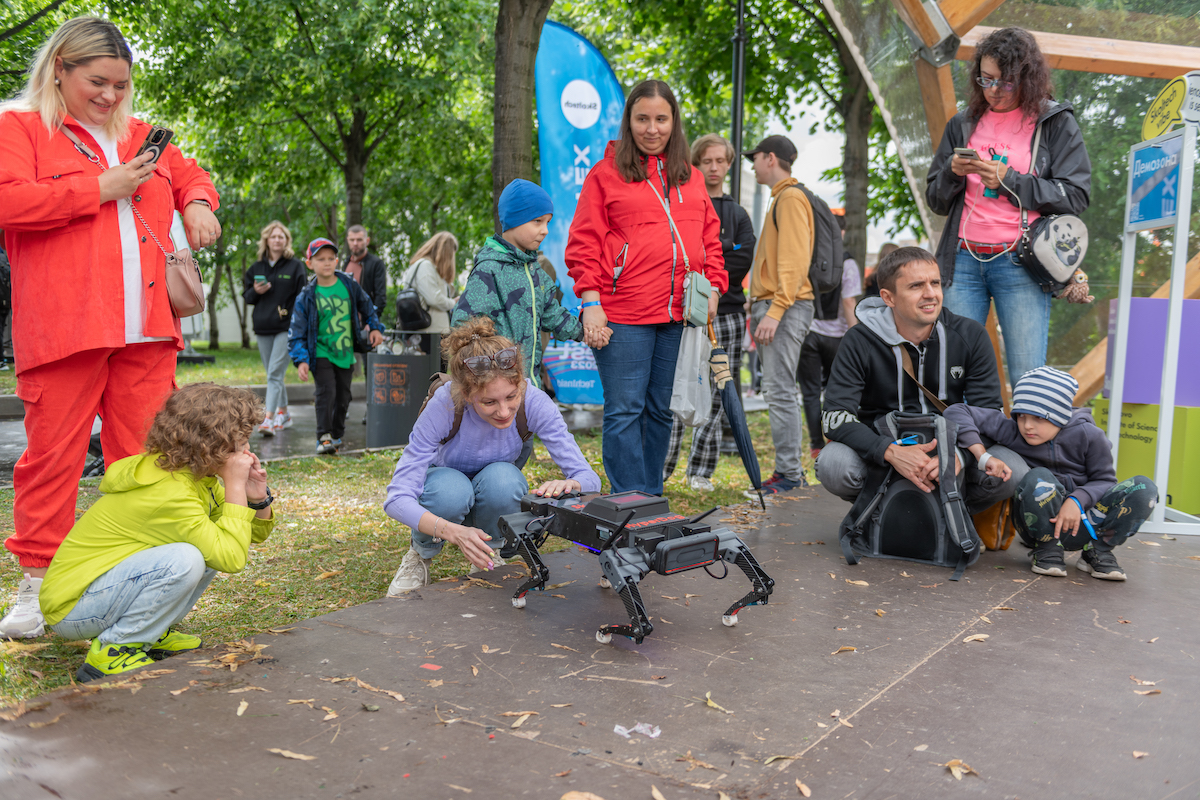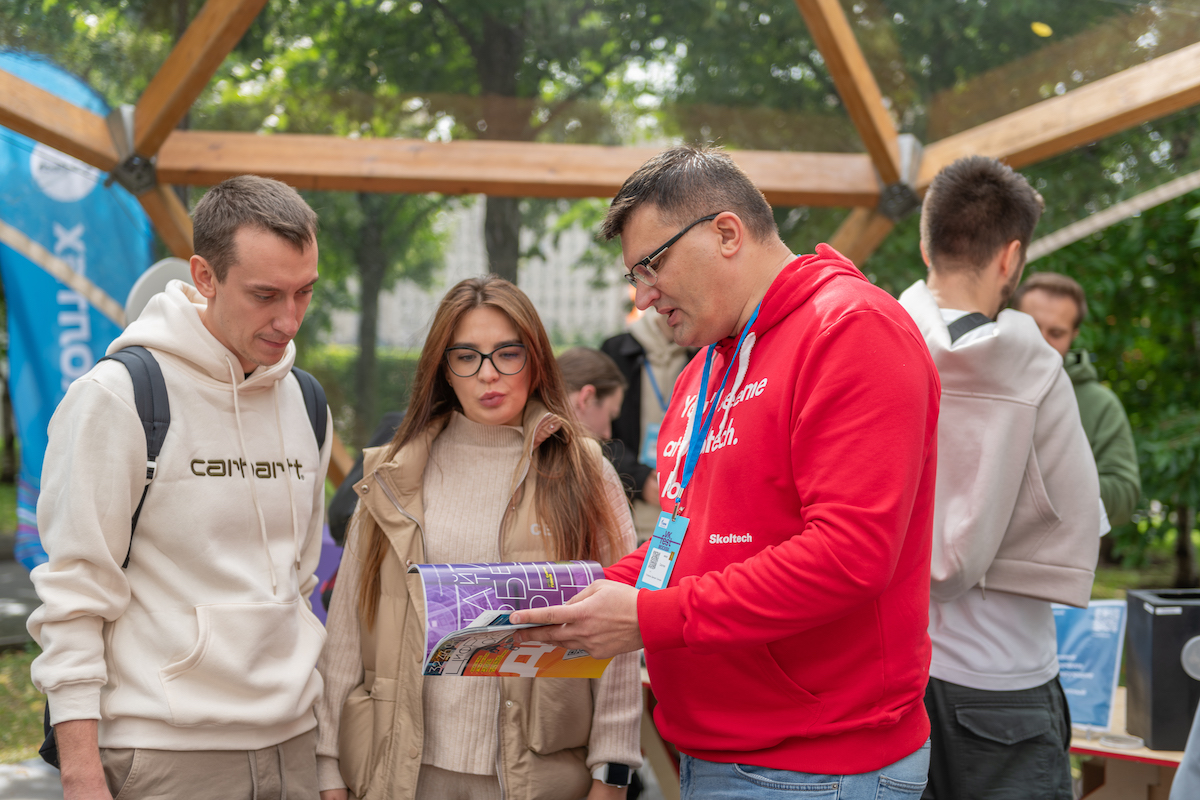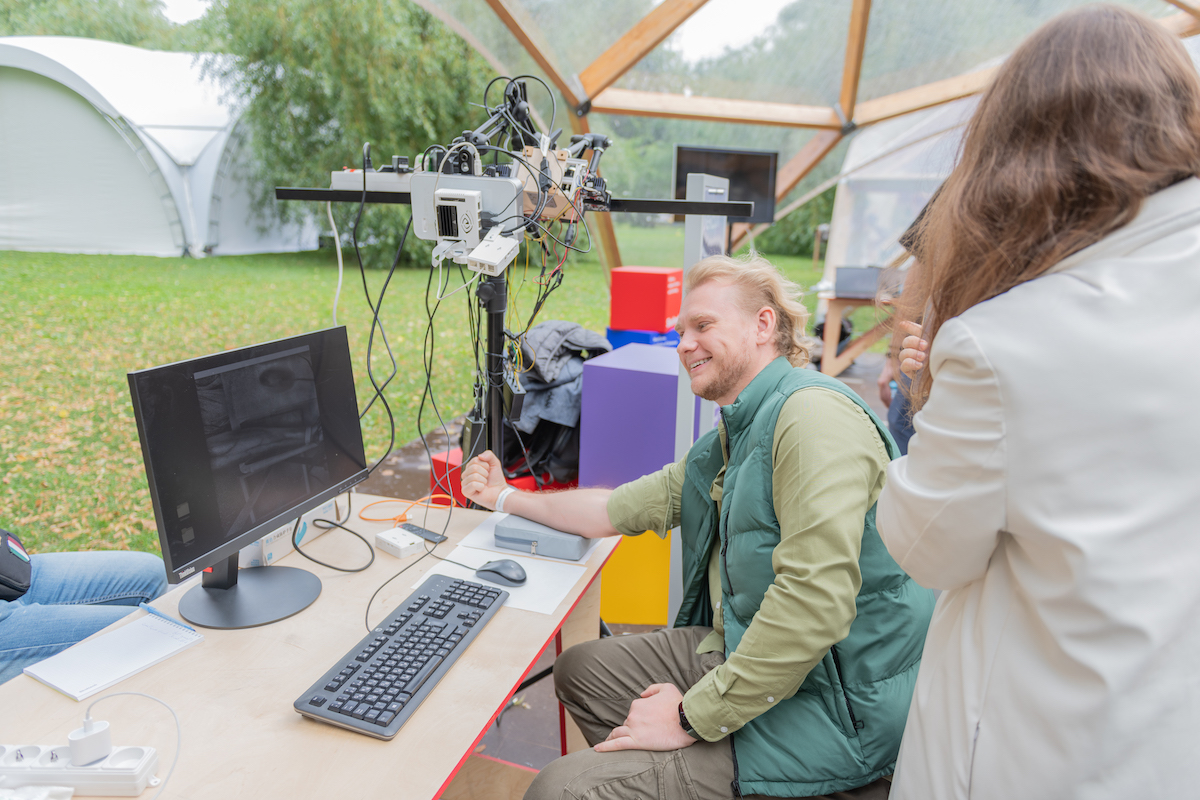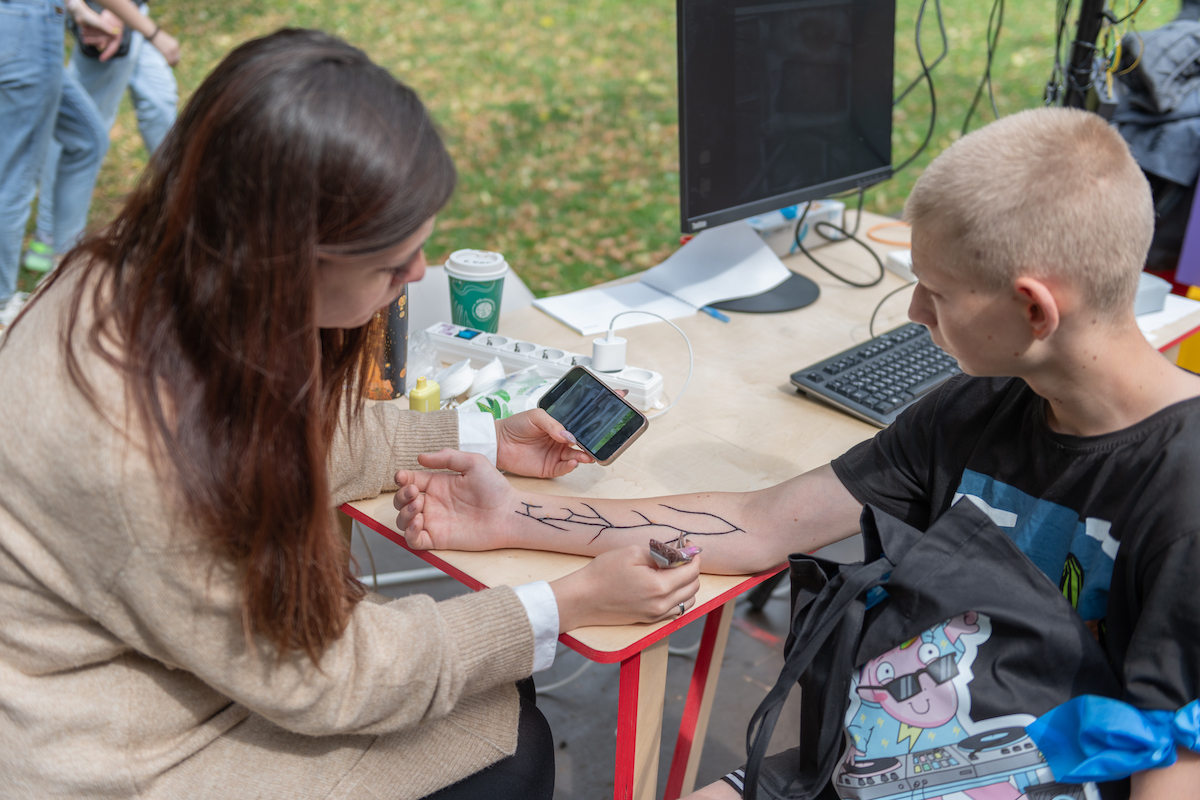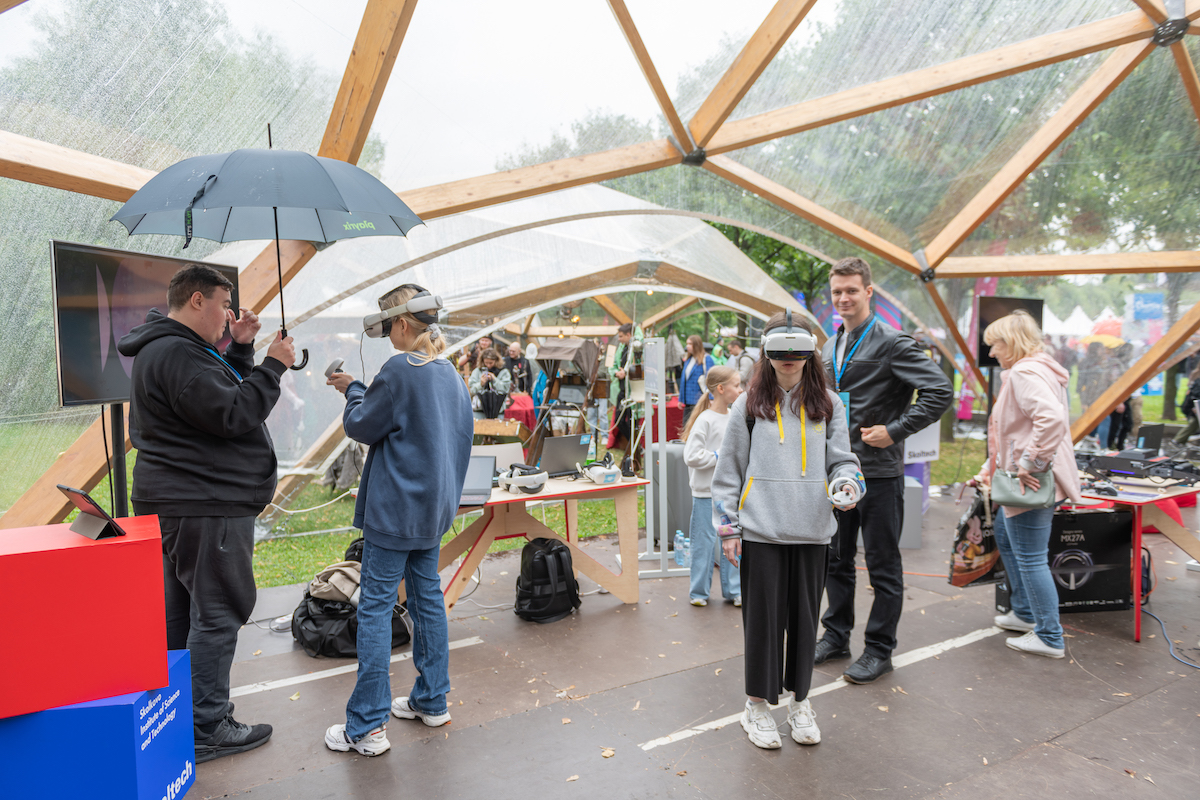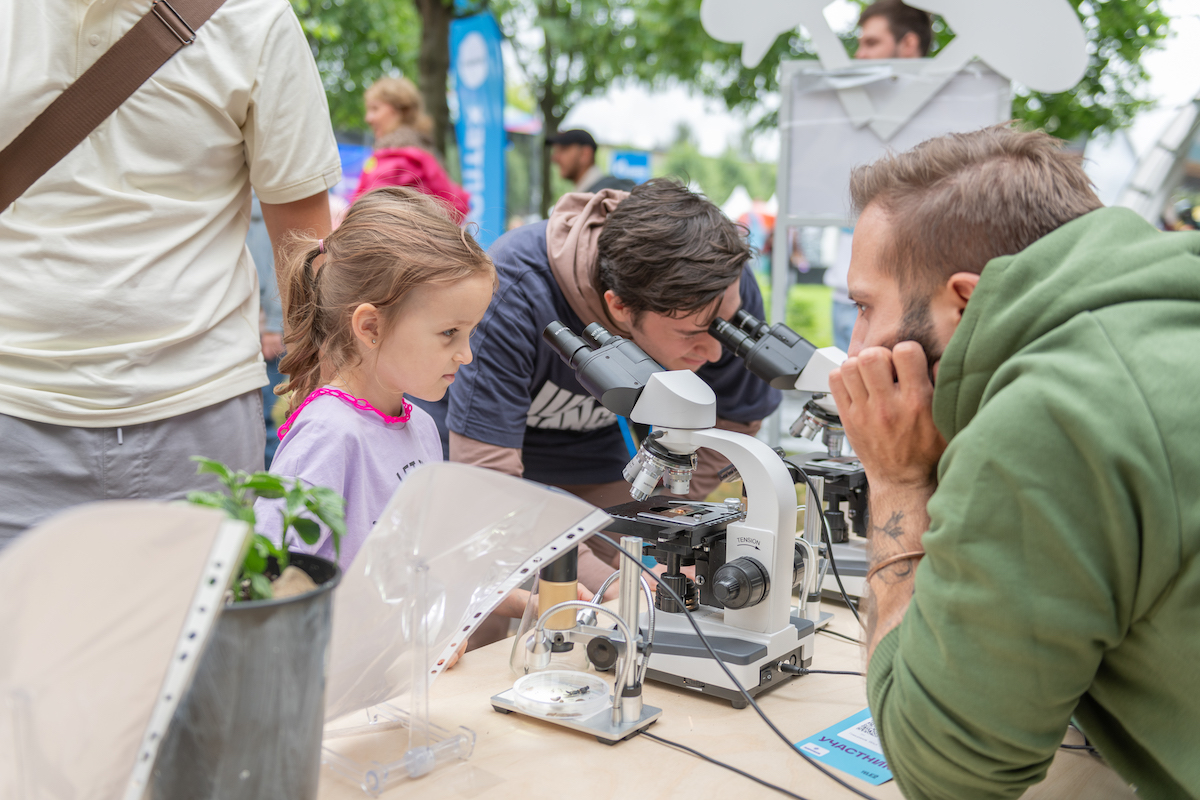“This is the first time Skoltech has participated in VK Fest, with its vibrant atmosphere, plenty of activities, and lively communication. Our zone focused on human-technology interactions,” the Skoltech Press Office said.
Visitors were greeted by HyperDog, a friendly robotic canine, and MorphoGear, a walking drone — both created by MSc and PhD students from the Intelligent Space Robotics Laboratory at Skoltech Engineering. The young engineers and Dzmitry Tsetserukou, the head of the lab, explained how modern robot control systems are developed and answered the guests’ questions.
Even though robots may look like toys, their underlying technology helps deal with highly challenging tasks, such accurate object recognition and analysis supported by neural networks.
“The interest toward robotic dogs was sparked by Boston Dynamics projects, which quickly became viral on YouTube,” Tsetserukou commented. “The technology has unique advantages over wheeled robots. The biomimetic robot has inherited the dog’s ability to walk on complex surfaces, such as stairs, crawl under or jump over obstacles, and even do somersaults. This makes four-legged robots highly versatile and capable of mimicking a dog’s behavior. It is this resemblance that makes them so appealing to people.”
The Skoltech zone also featured a vein imaging system developed by VeinCV, a Skoltech startup founded by Oleg Rogov, a researcher from the AI Center. The system uses an infrared camera, a special optical device, and artificial intelligence for vasculature imaging and analysis, which makes it easier to diagnose and treat some diseases. At VK Fest, visitors had a chance to not only get an image of their veins, but also have the pattern tattooed on their body by artist Olga Postolova.
Using a virtual reality headset developed by the Skoltech-born VR Lessons startup, the participants mastered the basics of molecular biology by performing some natural processes, such as cell division and protein folding, with their own hands.
Those eager to immerse themselves into the microworld used microscopes to examine the tissues of guar, the source of the guar gum thickener, the wings of the smallest known featherwing beetle, black soldier flies and their larvae, and genetically modified luminescent buckwheat roots. The sample choice highlights Skoltech’s various areas of research, including genetic studies of buckwheat and guar, which are important agricultural crops for Russia, and the black soldier fly — the food of the future. Also, Skoltech was the first in the world to obtain data on the aerodynamics of the featherwing beetle’s wings.
“Popularization of science is one of Skoltech’s lines of activity. We believe it is important to explain in simple terms what our scientists do and to communicate our findings to the general public,” the Skoltech Press Office commented.
Contact information:
Skoltech Communications
+7 (495) 280 14 81
